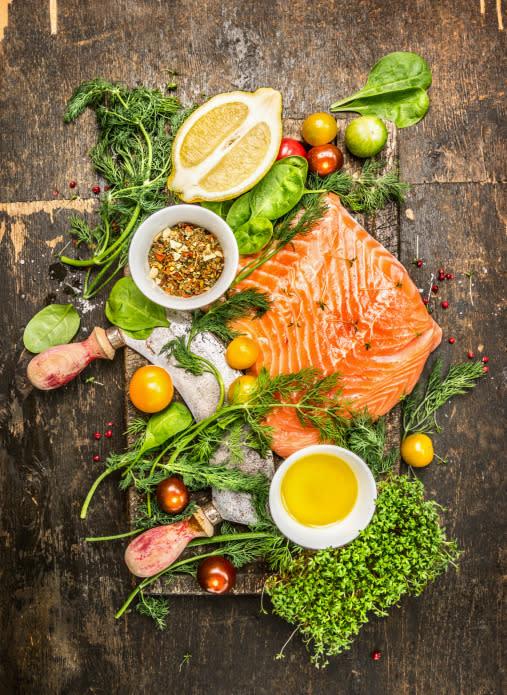It may not be too late to reverse sugar damage

Guilty of having a sweet tooth? You’re not alone.
By now you’re probably aware of the damage sugar can do to your body – it’s been linked to diabetes, cardiovascular disease and even Alzheimer’s – but that doesn’t make it any easier to shake the habit. Thankfully, a new study out of UCLA may have found a way to reverse this damage. The answer: DHA.
ALSO SEE: How to eliminate sugar from your diet in 21 days
DHA, or docosahexaenoic acid, is an omega-3 fatty acid that researchers now believe may be able to reverse the damaging effects of fructose, a sugar found in many popular sweets.
“DHA changes not just one or two genes; it seems to push the entire gene pattern back to normal, which is remarkable,” said Xia Yang, a senior author of the study and a UCLA assistant professor of integrative biology and physiology.
The study tested the effect on rats using a maze and three test groups. One group was given water with enough fructose to mimic a human drinking a can of pop, another was given both fructose and DHA, while a third group was given neither. After six weeks, they found the rats that were given fructose and DHA had similar results to the ones that received neither, suggesting the DHA was able to undo any damage caused by the fructose.
ALSO SEE: Dietitians push for Canada to impose a tax on sugary drinks
Further studies looked at more than 20,000 genes in the rats’ brains, identifying which ones were altered by a high-fructose diet. The findings may help scientists pinpoint which genes new drugs should target to treat diseases caused by fructose damage.
So how do you get more DHA in your diet?
While DHA exists naturally in the brain cells of the body, there isn’t enough to help fight disease.

“The brain and the body are deficient in the machinery to make DHA; it has to come through our diet,” said Fernando Gomez-Pinilla, a UCLA professor of neurosurgery and of integrative biology and physiology, and co-senior author of the paper.
According to the Dieticians of Canada, DHA-rich foods include most fish, eggs, nuts, wheat germ and vegetables like edamame and winter squash.
What do you think of the findings from this new study? Let us know your thoughts by tweeting to @YahooStyleCA.

